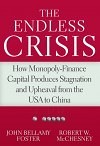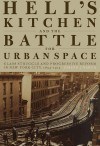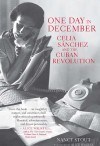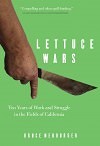
The Endless Crisis reviewed in The Spokesman
This is another book from the Monthly Review stable defending and extending the theoretical work of Baran and Sweezy, two redoubtable Marxist economists who along with Harry Magdoff kept the flame of Marxist economics alive in the United States through some pretty arduous domestic and international times. Readers may recall another title reviewed in Spokesman 111, The Great Financial Crisis: Causes and Consequences, in which the idea of capitalist stagnation was explained with particular reference to the present crisis. This new book takes on the task of defending and extending the same thesis on a broader theoretical basis, with additional material including substantial pieces on the international division of labour and China’s political economy. | more…





